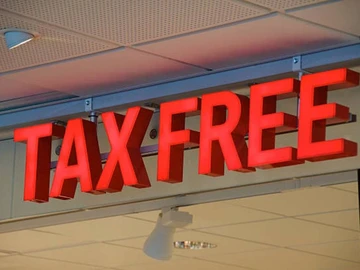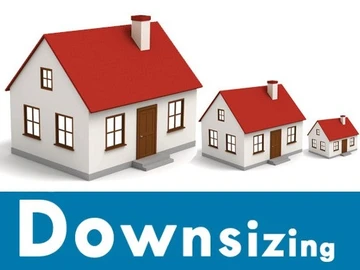Challenges in the Zimbabwe Real Estate Industry (2024)
Economic Factors:
- Limited disposable income: Many Zimbabweans struggle with low disposable income, hindering their ability to purchase property or afford high rental costs.
- Currency fluctuations: The instability of the Zimbabwean dollar creates uncertainty for investors and makes it difficult to price properties accurately.
- High interest rates: High borrowing costs can discourage potential buyers from taking out mortgages, dampening market activity.
Infrastructure and Development:
- Infrastructure gaps: A lack of reliable electricity, water supply, and proper sanitation in some areas can deter investment in real estate development.
- Slow infrastructure development: Limited foreign direct investment (FDI) can slow down the pace of infrastructure development, affecting the overall growth of the property market.
Regulatory Environment:
- Regulatory fluctuations: Frequent changes in government regulations can create uncertainty for investors and developers, making it challenging to plan long-term projects.
- Property valuation challenges: The introduction of value-added tax (VAT) on building materials can inflate construction costs, impacting property valuations and affordability.
Opportunities in the Zimbabwe Real Estate Industry (2024)
Shifting Market Trends:
- Growth in the rental market: Due to economic challenges, an increasing number of people are opting to rent rather than buy, creating potential for investment in rental properties.
- Rise of the suburbs: As urban living becomes expensive, a growing trend of people moving to the suburbs creates demand for affordable housing options in these areas.
- Demand for secure estates: Security concerns continue to be a major factor for many Zimbabweans. This drives demand for properties located within secure estates with additional amenities.
Focus on Sustainability:
- Energy-efficient properties: With rising electricity costs, there's a growing interest in properties with solar power installations and other energy-saving features.
- Green building practices: Eco-conscious consumers are becoming more interested in sustainable developments that minimize environmental impact.
Investment Potential:
- Government support for affordable housing: The Zimbabwean government's initiatives to promote affordable housing development can create opportunities for investors in this segment.
- Rise of REITs: The potential proliferation of Real Estate Investment Trusts (REITs) in Zimbabwe can offer new avenues for investment in the property market.
By understanding these challenges and opportunities, investors and stakeholders can navigate the Zimbabwean real estate market and potentially find success in 2024.
Zimbabwe Property Yield vs. SADC Property Yield
Zimbabwe's property yield is generally considered lower compared to most countries in the Southern African Development Community (SADC). Here's a breakdown:
- Zimbabwe: Yields typically range from 5% to 7% depending on the property type and location.
- SADC Region: Yields can vary more widely, but many countries offer higher returns. Some estimates suggest yields can reach 9% to 12% or even higher in specific locations.
Reasons for Lower Yields in Zimbabwe:
- Economic Challenges: The ongoing economic instability in Zimbabwe, with factors like currency fluctuations and high interest rates, makes real estate investment less attractive compared to some regional peers.
- Limited Liquidity: Difficulty in accessing mortgages and a lack of readily available funding can dampen investment activity, impacting rental price growth and consequently, yields.
- Supply and Demand: While demand for rental properties is rising, a shortage of high-quality options, especially in urban areas, can prevent significant rental price increases.
However, there are some nuances to consider:
- Yield vs. Capital Appreciation: While Zimbabwe might offer lower yields, some areas might see higher potential for capital appreciation in the long term.
- Investment Goals: Investors seeking high rental income might look elsewhere in SADC, but those prioritizing capital appreciation or a stable market might find Zimbabwe appealing.
Market Analysis: Zimbabwe's Office Space Market (2024)
Shifting Landscape:
The Zimbabwean office space market is undergoing a significant transformation, driven by several key trends:
Decline in CBD Demand: The central business districts (CBDs) of major cities like Harare are experiencing a decline in demand for office space. Factors like:
- High rental costs
- Limited parking availability
- Deteriorating infrastructure
- Growing preference for modern amenities, are leading businesses to explore alternative locations.
Rise of the Suburbs: Suburban areas are becoming increasingly popular for office space due to:
- Lower rental rates
- Easier access to parking
- Availability of modern office buildings
- Improved security
- Better proximity to residential areas for employees.
- In some cases, property owners are converting residential houses into office space to meet this growing demand.
Market Dynamics:
- Limited Supply: Despite the shift towards suburbs, the overall supply of modern office space across Zimbabwe remains limited. This creates a situation where high-quality space in desirable locations experiences high occupancy rates and potentially rising rental prices.
- Focus on Grade A Offices: There's a growing demand for Grade A office space, characterized by modern amenities, energy efficiency, and secure facilities.
- Coworking Spaces: The concept of coworking spaces is gaining traction, particularly among startups and small businesses, offering flexible work arrangements and cost-effective solutions.
Investor Considerations:
- Location is Key: Investing in office space in strategic suburban locations with good access to amenities and infrastructure can be promising.
- Grade A Development: Developing or renovating office spaces to meet Grade A standards can attract premium tenants and potentially higher rental yields.
- Understanding Tenant Needs: Catering to the evolving needs of businesses, such as providing flexible layouts, collaborative workspaces, and technology integration, can be a key differentiator.
Data and Resources:
Obtaining recent and comprehensive data on Zimbabwe's office space market can be challenging. However, some resources offer valuable insights:
- Knight Frank Zimbabwe Reports: Knight Frank publishes regular market updates with insights on office space demand, rental rates, and development trends. (Look for reports like the H2 2022 Zimbabwe Market Update)
- Local Property Websites: Websites like Property.co.zw or [invalid URL removed] might list office spaces for rent and provide market commentary.
- Real Estate Agencies: Consulting with established real estate agencies specializing in commercial property can offer valuable insights into specific locations and rental trends.
Looking Ahead:
The Zimbabwean office space market presents both challenges and opportunities. By understanding the evolving trends, focusing on strategic locations and modern amenities, investors and developers can navigate this dynamic market and potentially find success.
Residential Property Market Analysis: Zimbabwe 2024
Key Trends:
- Affordability Takes Center Stage: A significant portion of potential homebuyers in Zimbabwe prioritize affordability due to economic challenges. This has led to a surge in demand for properties priced under $100,000 USD. Developers are adjusting strategies by building smaller units and offering flexible payment plans.
- Rise of the Rental Market: Many Zimbabweans are opting to rent rather than buy due to affordability concerns and economic uncertainty. This creates opportunities for investors in the rental market, particularly for apartments and houses in desirable locations.
- Shift Towards Suburbs: Urban living costs are pushing people towards suburban areas. This trend is driven by the availability of:
Affordable housing options
More space
Improved security
Better quality of life (potentially)
- Security Focus: Security remains a top priority for many Zimbabweans. Gated communities and properties with modern security features are in high demand, particularly for families.
- Sustainability Considerations: Growing environmental awareness is leading to increased interest in energy-efficient homes with features like solar power and water conservation measures.
Market Dynamics:
- Limited Supply: Despite the growing demand, the overall supply of affordable and modern housing units in Zimbabwe remains limited. This can lead to:
High occupancy rates for desirable properties
Potential for rental price increases
Increased competition among buyers for available properties
- Government Initiatives: The Zimbabwean government is actively promoting affordable housing development through various policies and initiatives. This can potentially increase supply and improve accessibility for low- and middle-income earners.
- Foreign Direct Investment (FDI): Low FDI inflows can limit the pace of infrastructure development, impacting the overall growth of the residential property market.
Investment Opportunities:
- Developing Affordable Housing: Investing in projects that cater to the demand for affordable housing can be lucrative, especially in partnership with government initiatives.
- Serviced Apartments and Student Housing: The growing student population and a rise in short-term stays for business or tourism creates potential for investment in serviced apartments and student housing.
- Renovating Existing Properties: Upgrading and modernizing existing properties in desirable locations can cater to the growing demand for quality housing while offering competitive rental yields.
Challenges:
- Economic Instability: Currency fluctuations and high inflation can make it difficult to accurately price properties and create uncertainty for investors.
- High Transaction Costs: The significant costs associated with property transactions, including taxes and legal fees, can deter potential buyers and investors.
- Access to Funding: Limited access to mortgages and other financing options can hinder potential buyers and slow down market activity.
Looking Ahead:
The Zimbabwean residential property market offers a mix of challenges and opportunities. By focusing on affordability, security, and sustainability, investors and developers can contribute to the growth of the market and potentially achieve success.
 Continue with Facebook
Continue with Facebook
 Continue with Email
Continue with Email














